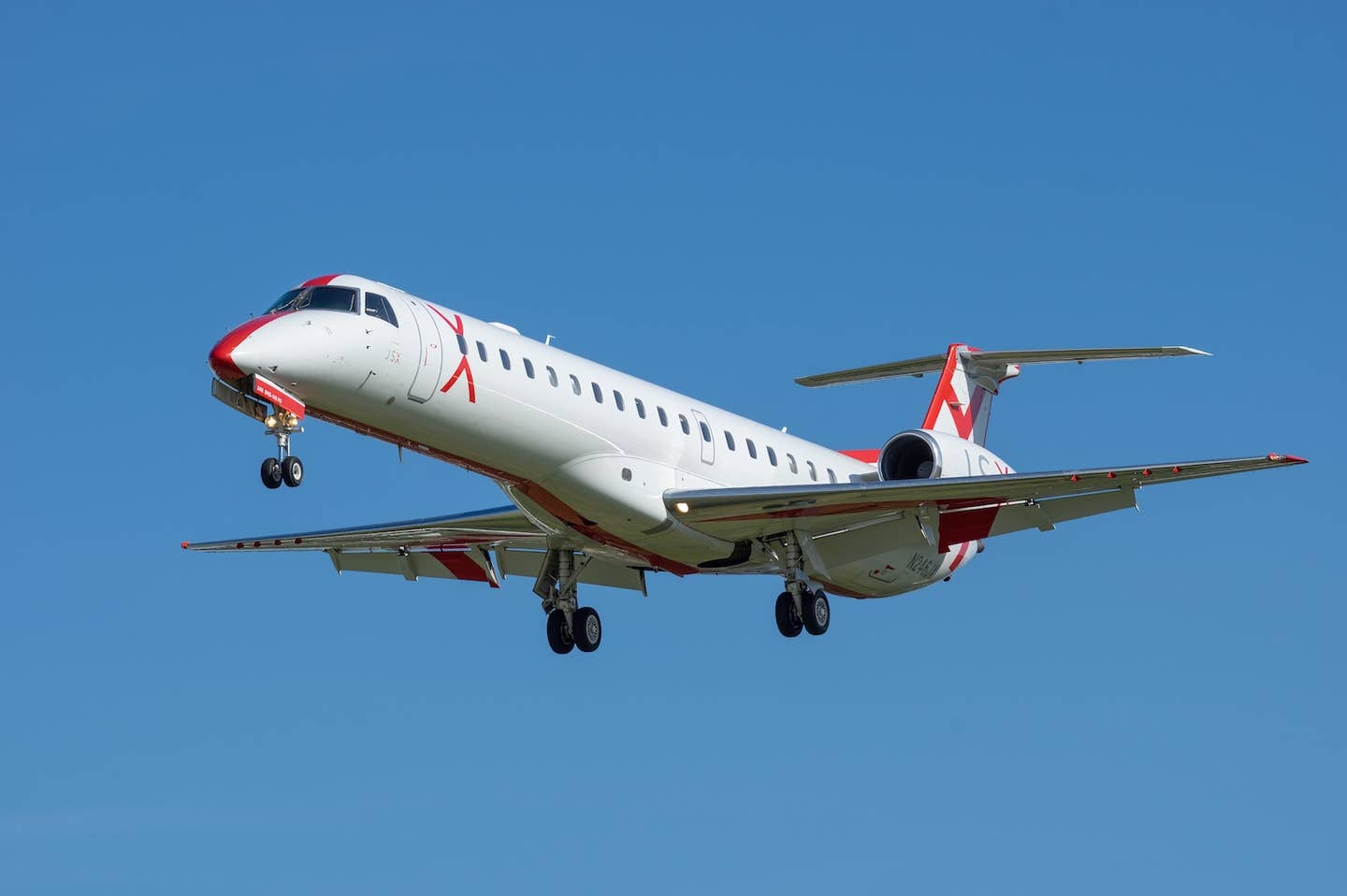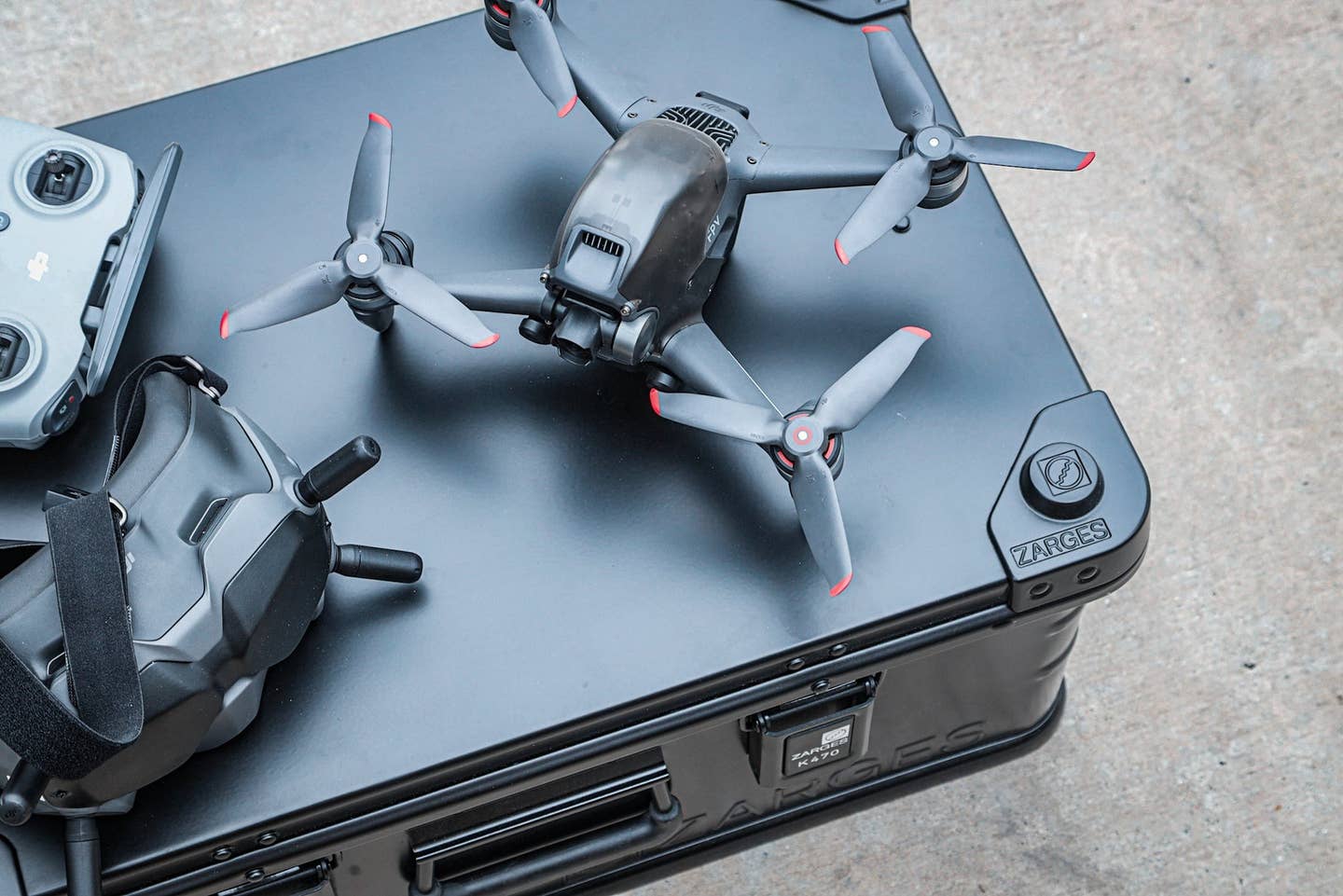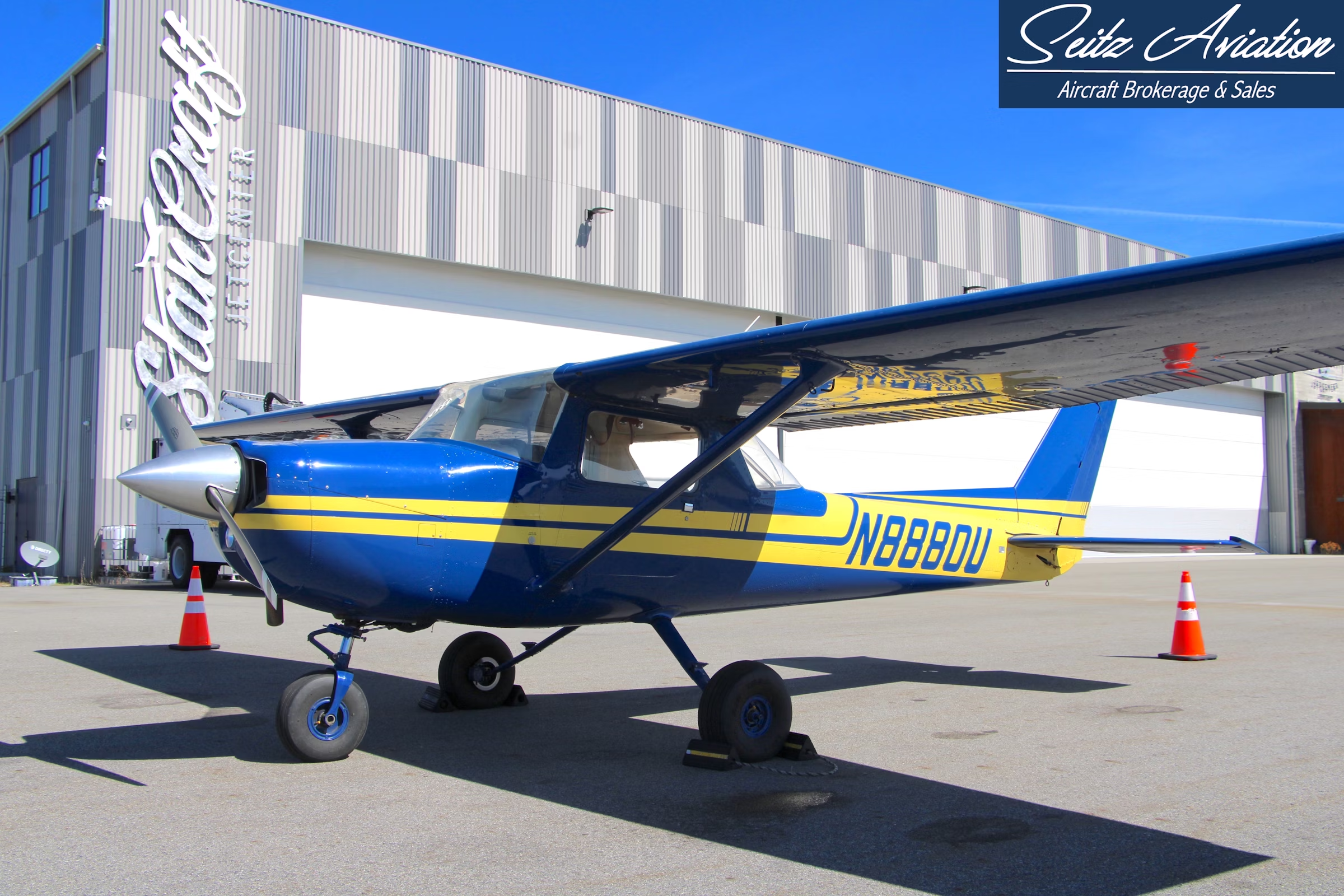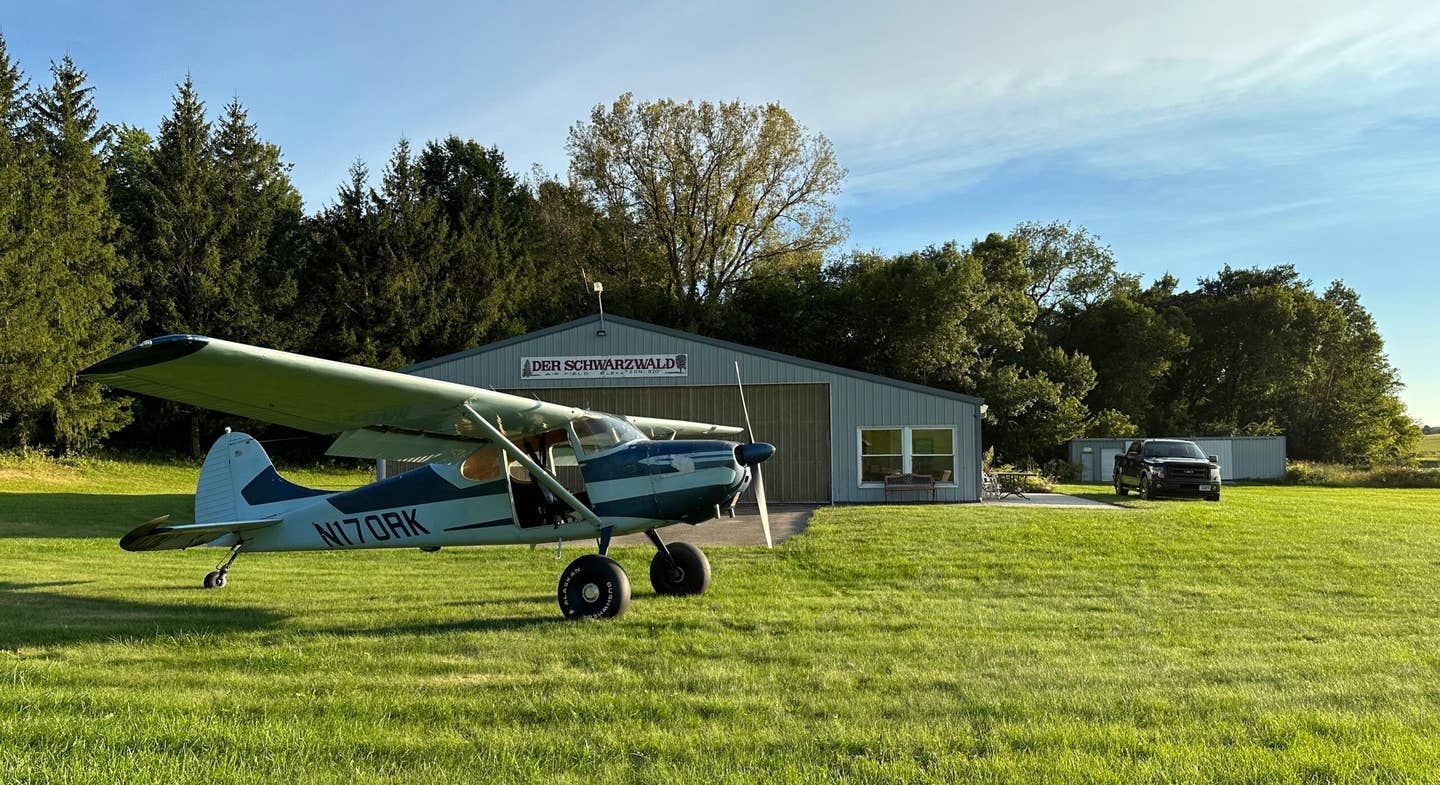Congress Seeking to Limit Public Charter Operators
New bipartisan bill aims to close so-called loopholes in airport security.

A JSX Embraer is shown approaching the Hollywood Burbank Airport for landing. [Shutterstock/Angel DiBilio]
Renewed legislation has been introduced to Congress aimed at closing so-called loopholes in airport security.
The Safer Skies Act, a bipartisan bill sponsored by Representatives Nick Langworthy of New York, Jack Bergman of Michigan, and Marc Veasey of Texas, seeks to boost safety standards for operators that don’t currently have “rigorous screening requirements.”
According to a news release from Congressman Langworthy’s office, the Safer Skies Act would require the Transportation Security Administration to update its screening requirements for Part 135 and Part 380 operators that offer individual seats in advance, give publicly available schedules, and operate aircraft with more than nine seats.
The act, brought back to the floor after first being introduced last year, would also mandate these operators be “held to the same security standards as any other scheduled commercial airline.”
On behalf of the Aviation Safety Caucus, Langworthy hosted a press conference in Washington, D.C., on March 26 to discuss the bill.
“Everyone who gets on a flight—whether you’re a passenger, pilot or crew member—they expect to reach their destination safely, because they’re accustomed to the high standards of safety and professionalism that defines the United States aviation industry,” Langworthy said during the conference. “With the rise of social media and more widespread accounting of airline incidents, it’s more important now than ever to dedicate ourselves to the mission of the Aviation Safety Caucus.”
Langworthy said the Safer Skies Act will “ensure no passenger bypasses rigorous screening” and keep U.S. skies safe from terrorists.
The new legislation, according to Langworthy’s news release, has received bipartisan support in Congress and from several aviation groups, including the Air Line Pilots Association (ALPA), Association of Flight Attendants (AFA), National Air Carrier Association, and the Transport Workers Union.
Union Support
“Gaming the system to get a competitive leg up by putting all of us at risk can’t fly!” said Sara Nelson, president of the AFA, in the release. “We applaud Representative Langworthy for taking action to stop outrageous attempts to skirt safety and security requirements that were put in place following September 11th. Never again. The irony should be lost on no one that those attempting to game the system are creating an aviation model grounded in the idea that if you have money the rules don’t apply to you. This is about crew and passenger safety and the security of the entire country.”
The bill comes after the U.S. Department of Transportation tentatively approved SkyWest Charter’s application to operate as a commuter air carrier in February after nearly three years of regulatory challenges.
SkyWest Charter (SWC) aims to operate public charter flights to serve small communities that have seen reductions in air service. The ALPA and other groups have argued that SWC’s proposed operations could undermine safety standards.
Other carriers—including JSX and Aero—would likely be subject to these additional screening requirements. Currently, the two carriers operate from fixed based operators (FBOs) with no standard TSA security checkpoints.
In January, Aviation International News reported that the TSA updated security measures for Part 380 public charters. The National Air Transportation Association (NATA) told its members it was reviewing the TSA changes and “communicating with affected operators to ensure a clear understanding and alignment on implementation.”
That said, the organization couldn’t specify on what exactly would be changed since it was classified.
Editor's Note: This article first appeared on AirlineGeeks.

Sign-up for newsletters & special offers!
Get the latest FLYING stories & special offers delivered directly to your inbox






